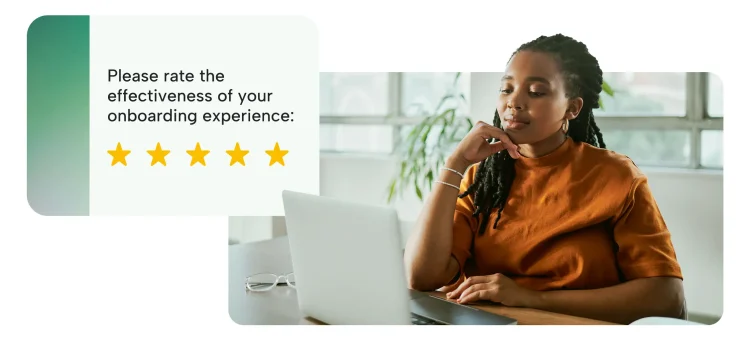Key findings:
- 51% of adults in the U.S. say there is not enough coverage of women’s sports by the media (just 6% say too much). Among women it’s 58% seeing too little coverage, rising to 73% among Black women.
- FIFA has a big gender problem: among those who are familiar with FIFA, 62% say the organization favors male players over female players
- Most in the U.S. (58%) say they want the World Cup prize money to be split evenly between USMNT and USWNT players, even though more prize money will have been allocated to the men’s team by FIFA
- Few Americans (14%) say the new contract agreements that give the USMNT and USWNT equitable pay will have a significant impact on gender equity in other professions
- Slightly more people in the U.S. can name a player on the USWNT than the USMNT (32% vs. 26%)
- A huge majority of the American public (77%) supports the recent NCAA change allowing student-athletes to profit during their college careers, but most think male athletes will benefit more than female athletes
Most in the U.S. want to see more gender equity in soccer, view FIFA as heavily favoring men over women
Half (51%) of adults in the U.S. say there is not enough coverage of women’s sports by the media, while 38% say there is currently the right amount and just 6% say there is too much coverage of women’s sports.
- 58% of women say there is not enough media coverage of women’s sports, compared to 44% of men.
- Younger Americans are most likely to say there is not enough coverage of women’s sports (58% of 18-34, 50% of 35-64, 42% of 65+).
- Black Americans are most likely to say there is not enough coverage of women’s sports by the media (67%), followed by Asians (58%), Hispanics (55%), and Whites (47%). The difference is even larger when comparing gender and race: nearly three-fourths of Black women say there is not enough media coverage of women’s sports (highest at 73%), while only a third of white men say the same (lowest at 37%).
- Almost twice as many Democrats as Republicans say there is insufficient media coverage of women’s sports (68% of Dems, 55% of independents, 35% of Republicans).
Just one-third of adults in the U.S. (32%) are very or somewhat familiar with FIFA, but among this group, a solid majority (62%) say that the organization favors male players over female players. FIFA’s notoriety is so well-known that even among the general public, about half of adults (49%) say FIFA favors men over women, compared with 33% who say the organization treats men and women equally and just 4% who say the organization favors women over men
- Women are slightly more likely than men (53% vs. 46%) to say FIFA favors men
- Young Americans are most likely to say FIFA treats men and women equally (39% of those age 18-34, 34% of 35-64, 21% of 65+).
- Hispanic males (47%) are most likely to say FIFA treats male and female players equally, while white women are least likely to agree (24%).
With these negative perceptions of FIFA in mind, most in the U.S. (58%) want the men’s and women’s national teams to evenly split any prize money from FIFA, even though the World Cup’s bonus structure pays out higher amounts to the men’s teams than the women’s teams.
- This margin grows when considering those who watch a lot of sports, and those who are familiar with FIFA. Two-thirds of those (63%) who watch a lot of sports say the USMNT and the USWNT should split the FIFA prize money equally, compared to 51% of those who do not watch sports at all.
- Two-thirds (67%) of those that are familiar with FIFA say the USMNT should accept less money, while about half (55%) of those who are not familiar with FIFA agree.
- More women than men agree (65% vs 53%) the prize money should be split equally.
- In every race/ethnicity, more women than men want to see the prize money split evenly, with the largest difference being between white men (51%) and white women (65%).
- 7 in 10 (71%) Democrats agree, compared to 49% of Republicans and 57% of Independents.
The U.S. Soccer Federation has made other efforts to equalize their organization’s treatment of male and female athletes. The Federation recently announced it will offer the men’s and women’s national teams the same contract proposals and pay structure. Few Americans think this will lead to a significant cultural shift in gender equity:
- 26% of Americans say the Federation’s decision will have no impact on other professions
- 28% say it will have a minor impact
- 24% say it will have a moderate impact
- 14% say it will have a significant impact
Most Americans cannot name a single player on either the women’s (65%) or men’s (71%) national team. But that means more individuals can name USWNT players than USMNT players: a third (32%) can name a player from the USWNT, while a quarter (26%) can name a USMNT player.
- Among those who closely follow sports, more individuals can name at least one USWNT (56%) than those who can name one USMNT player (45%). In fact, of those familiar with FIFA, 6 in 10 (60%) say they can name a USWNT player, compared to 5 in 10 (50%) who say they can name a USMNT player.
- Recognition changes across race and gender:
- Among men, 29% can name at least one player on the USMNT but 37% can name a player on the USWNT
- Among women, 24% can name at least one player on the USMNT but 29% can name a player on the USWNT
- Black men and Hispanic women can name more USMNT players (43% and 37% respectively) than USWNT players (35% and 27% respectively).
The American public supports the new NCAA policy that allows student-athletes to earn money while in school
A new NCAA policy allows student-athletes to earn money off their names, images, and likenesses, and a large majority of the American public (77%) supports this change.
- Those who watch a lot of sports are more likely to report they support this policy (82%) than those who do not watch sports at all (73%).
- Younger Americans show the greatest support for this decision (86% of 18-34, 76% of 35-64, 67% of 65+)
- Blacks (90%) show the greatest support, followed by Asians (86%), Hispanics (82%), and whites (73%). Race and gender show large differences again: nearly all (92%) Black women agree (highest), while 71% of white men agree.
Half of Americans (49%) believe that male athletes will benefit more from this new policy than female athletes (42% think they will benefit equally, while only 5% think female athletes will benefit more). There’s no difference in men’s and women’s views on who will benefit from this new policy.
Read more about our polling methodology here.
Click through all the results in the interactive toplines below:



